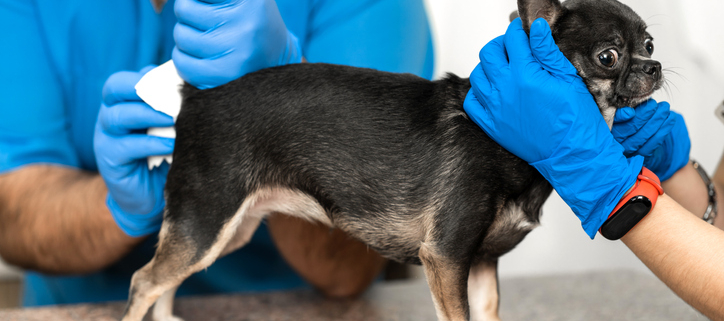Behind the Tail: Understanding the Facts about Dog Anal Glands
While the topic of anal glands may not be the most pleasant,
understanding these tiny, often overlooked structures can be crucial
for a dog’s health and well-being. Anal glands, also known as anal
sacs, are a pair of small, scent-producing glands located just inside
a dog’s rectum. Here are some essential facts about dog anal glands
every pet owner should know.
Scent Marking and Communication: Anal glands play a vital role in
canine communication. Dogs release a small amount of liquid from these
glands when they defecate or during stress or excitement. This liquid
carries a distinct scent that helps dogs mark their territory and
communicate with other dogs. This scent is unique to each dog and can
convey information about the dog’s identity, age, and emotional state.
Potential Problems: Anal gland issues are relatively common in dogs.
One of the most frequent problems is impaction or infection of the
anal glands, which can cause discomfort, pain, and even an unpleasant
odor. When a dog has an issue with their anal glands, they may scoot
their rear end on the ground, lick or bite their tail area, or display
signs of discomfort during bowel movements.
Regular Expression: In many cases, dogs naturally express their anal
glands during bowel movements. However, some dogs may have a
predisposition to anal gland problems and may require manual
expression by a veterinarian or groomer. This can help prevent
impactions and infections.
Diet and Fiber: Diet can play a role in the health of a dog’s anal
glands. Feeding your dog a balanced diet with sufficient fiber can
promote regular and healthy bowel movements, reducing the risk of anal
gland issues.
Seek Veterinary Care: If you notice any signs of anal gland problems
in your dog, such as scooting, excessive licking, or signs of
discomfort, it’s essential to consult with your veterinarian promptly.
Ignoring these symptoms can lead to more severe issues and potential
complications.
In conclusion, while anal glands may not be a favorite topic of
conversation for dog owners, understanding their role and potential
problems is crucial for maintaining your dog’s health and comfort.
Regular veterinary check-ups and a well-balanced diet can help ensure
your dog’s anal glands function correctly, reducing the risk of
discomfort and potential complications.



